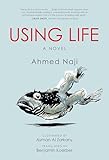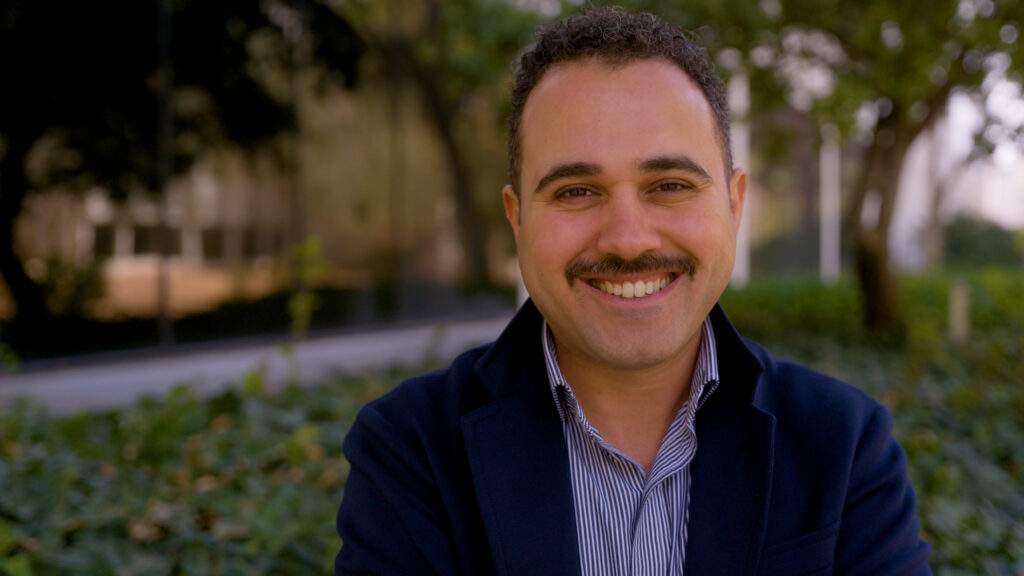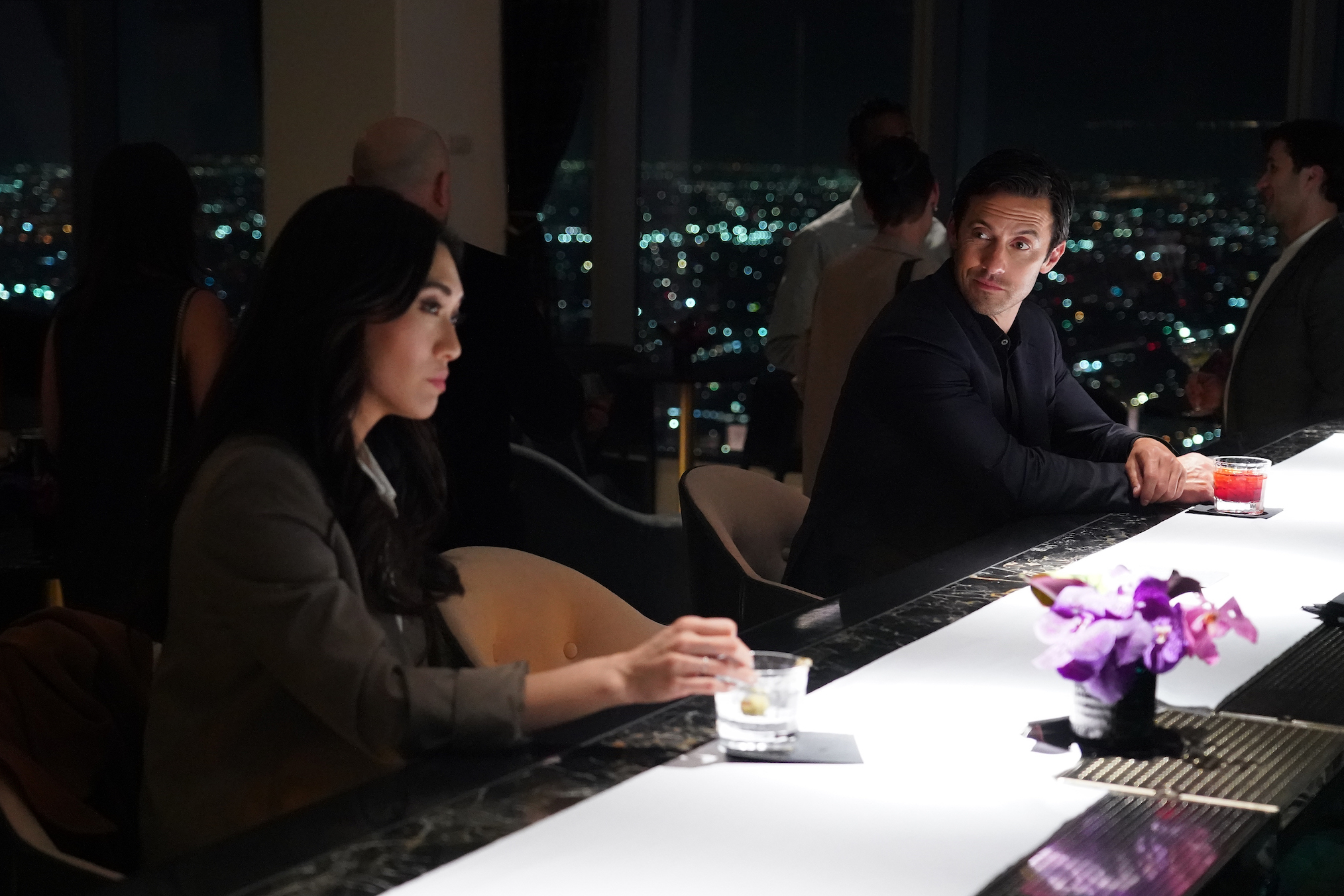For my millennial generation of Arabic writers, Ahmed Naji is a name we associate with play and risk. Naji is a practitioner of humor and sarcasm, profanity and sex positivity, all interwoven with a politics of despair. He is terrified of melancholia and nostalgia, but through this fear, a close reader can feel the warm presence of a vulnerable man. At the age of 40, his career consists of many chapters already: an anonymous blogger, a cultural journalist, a music and arts critic, a novelist, and now a memoirist as well.
 In February 2016, Naji was sentenced to two years in prison for “violating public decency” with his novel Using Life. In his new memoir Rotten Evidence, he recounts his experience of incarceration. In honor of PEN International’s annual Day of the Imprisoned Writer, I talked with Naji about life in prison, the many personas of memoir, and about the debates on incarceration and literature in Egypt.
In February 2016, Naji was sentenced to two years in prison for “violating public decency” with his novel Using Life. In his new memoir Rotten Evidence, he recounts his experience of incarceration. In honor of PEN International’s annual Day of the Imprisoned Writer, I talked with Naji about life in prison, the many personas of memoir, and about the debates on incarceration and literature in Egypt.
Mona Kareem: There is a rich tradition of prison literature in Arabic. What made you decide to write about your prison experience in the memoir form instead of the novel? A reader can notice that your memoir, at a certain point, becomes more of a nonfiction book.
Ahmed Naji: When I was in prison at one of my family visits, my brother told me he had met the renowned Egyptian writer Sonallah Ibrahim—a man who tasted the steel bars of prison for half a decade during the 1960s. Ibrahim wanted to give my brother an ink chamber tube to give to me so I could write while I was in prison. During Ibrahim’s time in prison, pens weren’t allowed, and so they had to be smuggled in so that political prisoners like Ibrahim could write. But it’s different now—I had no problem getting pens when I was in prison. This encounter summarizes my prison experience and how it differs from previous generations of writers.
Ibrahim and his contemporaries were politically incarcerated. Me? I wasn’t jailed for my political activism. I wasn’t a member of political party or revolution movement. And when I was arrested, I was alone, not surrounded by my party members in the cell. So, it felt almost as if the literature of Arabic prison life had duped me, offering narratives that bore no resemblance to my own lived experiences. This disconnect drove me to review my own story, independent of the framework set by the established Arabic prison literature.
The urge to articulate my ordeal was overwhelming, yet I couldn’t frame it in the confines of fiction or a novel. I tried by the way—I wrote more than 30,000 words in a novel project that was so bad and stinky. Authenticity was my only avenue. During my case, I was gagged by legal restraints, forced to navigate my words carefully to avoid jeopardizing my defense. So after I left the prison and the case ended, I needed to digest the whole experience. I needed to write freely about all that happened. I needed to dissect fragments of myself, laying them bare on paper. It’s one thing to examine yourself; it’s another to etch it into ink for the world to see. This self-scrutiny was a challenge far too intricate for the realm of fiction; it needed to be raw, real—flesh and bone on paper.
MK: You were able to write about your prison experience shortly after your release, as if you were afraid of forgetting something or of carrying the burden of the story for longer. How did it feel to revisit this book, in this edition, after years of its initial writing?
AN: I had the pleasure of working with two great people in English—my translator, Katharine Halls, and editor, Daniel Gumbiner. After Katharine finished the translation, I asked Daniel to edit it as an English manuscript. The three of us worked together for over a year on this draft. Interestingly, the English version has 4,000 more words than the Arabic one. The book’s structure is also different—how the chapters and fragments are organized varies greatly from the Arabic text. Some parts even got cut in the English version. The changes were influenced by my five years living in the United States. During this time, I learned a lot about the culture and the literary scene and developed my fictional English reader. So, the editing aimed to make the book appealing to this imaginary English reader while still reflecting my evolving sense of style.
I learned a lot from Katharine. When she began translating, I asked her to let me know if different edits could improve specific paragraphs. In the Arabic edition, for example, I switched between first-person and third-person narration, sometimes even in the same paragraph. While this style is common in Arabic and has its own rhetorical aesthetics, it can create confusion in English. So, we decided to edit the text to maintain a consistent first-person perspective.
Writing the Arabic edition was about giving form and meaning to my prison experiences. On the other hand, reading and working on the English translation that Katharine provided was like seeing myself reflected in an English mirror, creating meaning for the last five years of muted exile.
MK: You are a cultural journalist, novelist, and now memoirist. In fiction, almost everything is permissible, while in memoir, there is an ethics and a pursuit of articulations and mediations, a different vulnerability. How did you navigate this shift?
AN: I’ve noticed that many writers of prison literature tend to act as voyeurs, captivated by the diversity of people they find themselves with. Prisons and detention centers are spaces where people from different classes and backgrounds are forced to live together, so the writer meets the people he will usually never encounter.
But writers often tokenize these individuals, sharing their stories and secrets without their consent; this really bothers me. Often when political prisoners write about their experiences and label other inmates as “drug dealers” or “thieves,” just because authorities have given them these labels. It’s ironic because these same authorities might label the political prisoner as a “terrorist,” yet their fellow inmates wouldn’t call them that.
This is just one example of the ethical issues that can crop up in prison literature. I chose not to follow this path, not just because it conflicts with my own writing ethics but because it’s unfair to the people I lived with for over a year. More importantly, my goal went beyond simply writing a dramatic story or appealing to the reader, I wanted to create something that truly examines the concept of prison on a global scale, encouraging us to think of alternatives.

MK: Considering that I’ve known you and read your writings for over a decade now, I was wondering if the narrator in your memoir is faithful to his past self vs. his contemporary self. For example, you begin the memoir saying you never wished to change society, but you were a blogger active against the Mubarak regime, and you took part in the revolution, even if you were disillusioned with it quickly. Images of the self can be difficult to write, and I was hoping you could tell us more about which self you write of/for?
AN: Before the 2011 revolution, the idea of changing society—or anything for that matter—was practically nonexistent. I think most people were in survival mode. Living under the Mubarak regime felt like a massive lie that you were compelled to believe in and participate in—imagining an alternative was out of the question. Our most radical political aspiration then was to end the state of emergency we were living under. The revolution began with calls to prosecute the police officers responsible for the death of Khaled Said, a victim of police brutality and a symbol for the Egyptian revolution. That was the highest we could reach. I was inherently nihilistic before the revolution, and that’s the standpoint I mentioned in the book.
We used to live hidden, almost in our own isolated bubbles. You brought up the era of blogging; it’s worth noting that I, like many Egyptian bloggers of that time, wrote under a pseudonym due to fear of both society and authorities. However, it was through blogging that I met Alaa Abd El-Fattah and others. This helped me see that I am not alone, and hear and learn about different ideas and different imaginations of the world and Egypt.
That changed in 2011 when those protective bubbles burst, and the fundamental transformation began. Egypt’s turmoil over the past decade is mainly due to a military regime trying to revert things back, aiming to trap us in those “fear bubbles” once again—a goal that’s now impossible to achieve. In the middle of in this struggle, writing has been a way to craft my self-image. There have been numerous instances when I was taken aback by what I remembered or felt was important enough to write about. The memory becomes a pixel of the self-image after writing it.
MK: You write about how U.S. funding for Egypt to build more prisons have turned Egyptian prisons into crueler spaces, meeting behind glass instead of sitting to one table, being able to touch your loved ones during visitation. Through the English translation, your book can come in conversation with contemporary writings in the U.S. around incarceration and the abolishment of the police and the prison system. How do you anticipate this new travel of your text?
AN: The U.S. prison system is both harsh and intimidating. It primarily operates without oversight from civil society or human rights organizations, and the idea of privatized prisons is unfathomable to me. Since moving here, I have been trying to educate myself about this system and how it works. I’ve read with former prisoners at literary events in Nevada and even co-edited a special edition of INTRA Magazine with my friend and poet Jo O’Lone-Hahn, featuring works from current and former inmates. Reading their letters and literary works evokes a deep sense of injustice and darkness.
The modern prison model is rooted in 19th-century thinking; it needs to be updated and congruent with social changes. As we evolve, we must ask fundamental questions: Why do we still have prisons, and is this system going to last forever? Are they meant for punishment or rehabilitation? What’s their ultimate purpose, and how can we fulfill that purpose without robbing people of their lives—something we can’t return even if a judgment is later found to be flawed?
MK: You write about Alaa Abdelfattah, perhaps the most known political prisoner in Egypt. You’ve known each other since the blogging days under Mubarak’s regime. Abdelfattah was the first person I encountered in Arabic to talk about prison abolition. What does it mean to write about prison today when imagination and hope are scarce?
AN: I was fortunate to cross paths with Alaa at a young age; he’s been a constant source of inspiration both inside and outside prison walls. One of the valuable lessons I’ve obtained from him is the refusal to compromise for the sake of aligning with the majority, the strongest, or the winner. It’s about holding onto your ideals and freely expressing your vision, which I believe is the cornerstone of meaningful interaction with others. I hope this book serves as a catalyst for other inmates in Egypt—or anywhere for that matter—to write their own experiences, free from the narrative constraints that often paint prison solely as a political battlefield, and prisoners as victims. My aim is to provoke thought, prompting people to address lingering questions about the purpose of imprisonment, the significance of solidarity, and the far-reaching consequences of book bans.


























































